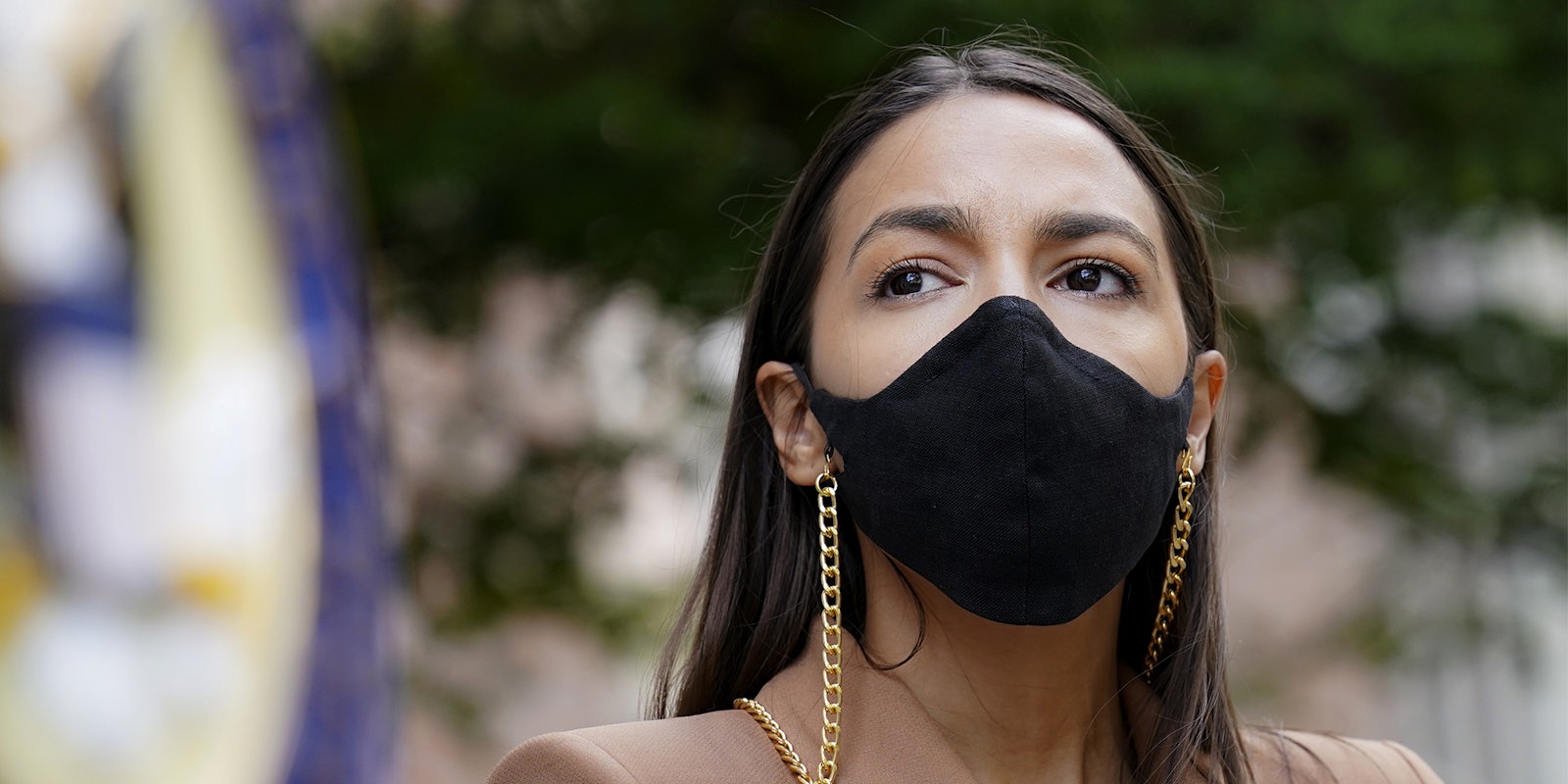Since QAnon candidate Marjorie Taylor Greene won the Republican primary in Georgia’s deep-red 14th district, raising a real possibility a believer will be seated in Congress, the conspiracy theory has become a central part of political discourse.
QAnon holds that Trump and his inner circle are waging a war against Democrats and other deep state enemies (all of whom are pedophiles) and that Trump’s team is secretly using internet forums to send messages to his true believers about his plans.
Republicans have offered differing reactions to QAnon becoming a faction of their voter base. President Donald Trump praised the conspiracy theory’s adherents as “people who love our country.” House Minority Leader Kevin McCarthy (R-Calif.) has said “there is no place for QAnon in the Republican Party.”
Democrats have used Greene’s successful candidacy as proof that the GOP has succumbed to madness. Asked about the conspiracy theory on Saturday, Rep. Alexandria Ocasio-Cortez (D-N.Y.) sought to look beyond the bizarreness of the theory positing Democrats are Satan-worshipping pedophiles to examine the root cause of the new reality in which a massive segment of Republican voters are following what’s essentially a cult.
Ocasio-Cortez told the Daily Dot, “there’s so much you can say about it on its face. Obviously, these candidates getting elected is clearly very concerning to the party, it’s concerning to members, I’ve heard it’s concerning for Republican donors.”
She added, “but I actually think, in a way, outside the immediate transactional politics of the situation, it’s important to understand the root causes as to why something like this is taking off so much. And to me, it’s really symptomatic of a lot of the long-standing, deep issues we’ve been having. In particular, the Republican party has been having.”
Asked about the longstanding issues she sees as responsible for making a receptive atmosphere for QAnon, Ocasio-Cortez said, “I mean, the allowance of misinformation and disinformation to be widespread and frankly the Republican encouragement of that has now kind of created this ecosystem that they no longer feel they have control of.”
She listed other deep-standing issues as “the fundamental lack of trust in institutions, lack of trust in money and power that creates this very fertile ground for conspiracy theories to grow.” She added: “I think that we see how the president is weaponizing it. It’s very clear that he has identified this as an asset to him. And so I think that also puts Republicans even more in a very, very deep bind. Because what do they do?”
The QAnon conspiracy theory will most likely have a legislative presence on Capitol Hill after Greene’s victory. Prior to her primary win, Greene had said that “Q is a patriot” and that the theory is “something worth listening to and paying attention to.”
Greene has since backtracked after a swelling of outrage. She explained, “there was a time there for a while that I had read about Q, posted about it, talked about it, which is some of these videos you’ve seen come out. But once I started finding misinformation, I decided that I would choose another path.”
But Greene is not the only QAnon candidate in the GOP mix. Media Matters lists 20 QAnon-affiliated candidates, 19 of whom are Republicans, that have won their primaries and will appear on the ballot in November. In Colorado, Republican Lauren Boebert said that she hopes QAnon “is real because it only means America is getting stronger and better.” In Oregon, the GOP’s Senate candidate, Jo Rae Perkins, has said that there is a “very strong probability/possibility that Q is a real group of people, military intelligence, working with President Trump.”
And with the president’s outright refusal to dismiss the conspiracy, there’s a strong likelihood it only grows in stature.


